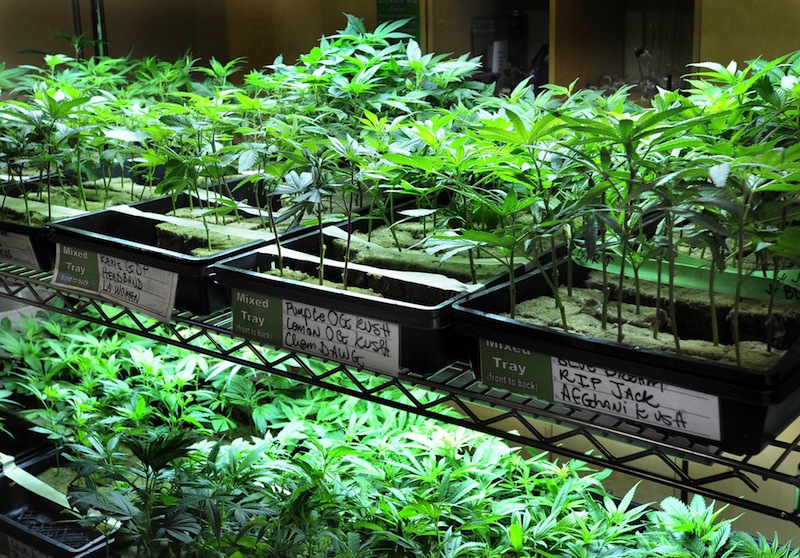PORTLAND – A national group that wants to legalize marijuana is taking advantage of this weekend’s high-profile beer festival in Portland by handing out fliers saying marijuana is safer than alcohol.
“The goal is to get people thinking about the fact that marijuana is an objectively less harmful substance than the one that is being celebrated throughout the city this weekend,” said David Boyer, the Maine political director of the Washington, D.C.-based Marijuana Policy Project.
A dozen volunteers began distributing literature throughout the Old Port on Friday, and will continue Saturday, he said. The public relations effort on behalf of pot is a taste of what’s to come in Portland as the city prepares for a referendum on legalizing it, perhaps this fall.
It’s also an example of what worries some public health advocates and substance-abuse experts.
They say the legalization arguments send mixed messages to teenagers, for whom marijuana use may not be at all harmless.
“We need to be very cognizant of the messages our youth are getting around marijuana,” said Joanne Morrissey, a project leader for 21 Reasons — a nonprofit that advocates for drug-free youths.
Morrissey said comparing marijuana to alcohol is “a silly argument to make. Both are harmful — especially to youth.”
The marijuana-is-safer campaign will go beyond Portland, with leafletting at events including the Maine Lobster Festival in Rockland, the Yarmouth Clam Festival and the Bangor State Fair, Boyer said Friday.
“This is the first big event of our summer outreach,” he said, as volunteers in Post Office Park distributed palm cards showing a bright-eyed, smiling woman.
One side of each card cites statistics comparing the annual health-related costs of alcohol and marijuana — $165 per user and $20 per user, respectively.
The card says that no deaths have been attributed directly to marijuana-related health effects, while 37,000 deaths a year are associated with alcohol-related health effects.
Also, it says 5 million cases of domestic violence are linked to alcohol, while no studies have found links to marijuana.
“Marijuana use doesn’t make someone a bad person,” said Boyer, nor does alcohol use. “Adults can use both substances responsibly.”
People who were walking past the park Friday had mixed reactions to the marijuana volunteers. Many people refused to take cards. One man took a card, stopped in his tracks and gave it back, telling a volunteer the claims aren’t true.
But Ashley Michaud, 27, said she agrees with the volunteers. “I think people who smoke just want to sit on the couch and eat,” she said. “People who drink go out and get rowdy.”
The American Civil Liberties Union of Maine and state Rep. Diane Russell, D-Portland, were among those supporting the marijuana volunteers.
Russell sponsored a bill, supported by the ACLU, that would have legalized and taxed marijuana, but the measure failed by four votes in the House.
“We came up short but we were so close. It’s a clear statement that the people of Maine are ready to do it,” Russell said. “Its time has come.”
Marijuana is illegal under federal law.
In Maine, possession of as much as 2.5 ounces is a civil offense, not a crime, and marijuana is legal to use for certain medical conditions.
A group of Portland residents recently collected enough petition signatures to put a ballot question before voters that would make it legal for anyone 21 or older to possess the drug. The city will hold a public hearing on the proposal July 15.
Mayor Michael Brennan said this week that the measure, which would make marijuana legal in Portland through a municipal ordinance, would have little effect because state laws trump local ordinances.
“It’s a sentiment,” Brennan said.
Police Chief Michael Sauschuck said police are taking a wait-and-see approach to the legalization effort, before commenting on enforcement.
ACLU spokeswoman Rachel Healy said that if Portland votes to legalize marijuana, it will send a message to the rest of the state.
“Hopefully, Portland will just be the first step and we’ll be able to take this success to the state level,” she said.
That’s exactly what worries anti-drug advocates, especially those who work with teenagers.
Teenagers are considered most vulnerable to health effects of alcohol and marijuana because their brains are still developing.
A widely-cited study last summer suggested that heavy pot use by teenagers can be linked to reduced IQs.
Morrissey, with 21 Reasons, and others say teenagers are most likely to become addicted to the drug, and that marijuana use is linked to heart and lung complications, car crashes and mental illness, including psychosis, depression and anxiety.
Morrissey said teenagers are impressionable, and events such as Friday’s informational campaign and Portland’s legalization debate are sending a message that use of the drug cannot harm them.
The Maine Integrated Youth Health Survey tracks alcohol and drug use, and perceptions of the risks associated with both among high school students.
In 2009, when there was debate about increasing access to medical marijuana in Maine, 29.1 percent of high school students said there was no risk or a slight risk of harming themselves by using marijuana regularly, according to the survey. Fifty-six percent said there was no risk or slight risk of harm from smoking occasionally. In 2011, those percentages increased to 43.9 percent and 59.5 percent, respectively.
In Portland, the numbers were even bigger.
In 2009, 40 percent of Portland high school students said there was no harm in smoking marijuana regularly and 59.3 percent said there was no harm in smoking occasionally.
In 2011, those figures increased to 48 percent and 64.9 percent, respectively.
Morrissey said the statistics show that young people are accepting the notion that marijuana is safe.
“Studies show that once youth finds something not as harmful, they are more likely to partake in that activity or substance,” Morrissey said.
Randy Billings can be contacted at 791-6346 or at:
rbillings@pressherald.com
Twitter: @randybillings
Send questions/comments to the editors.



